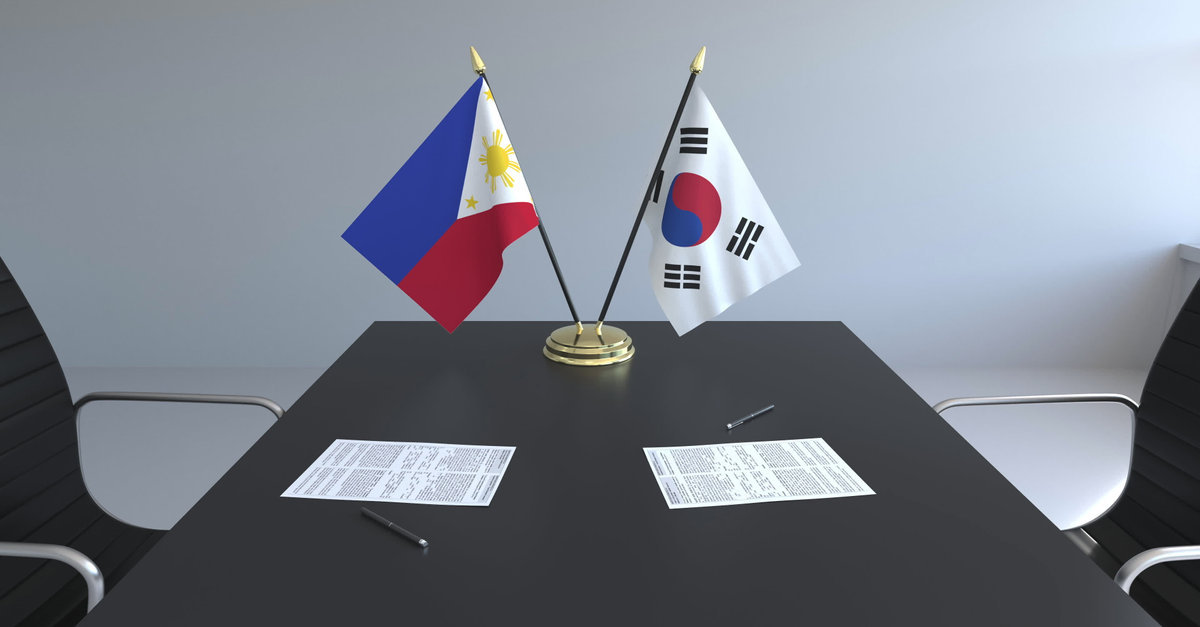
Flags and papers on the table. Negotiations and signing a contract. Conceptual 3D
A group of textile and apparel exporters is projecting a “moderate” boost in their shipments to South Korea with the planned free trade agreement (FTA) between Manila and Seoul.
According to Foreign Buyers Association of the Philippines (Fobap) President Robert Young, they exported around $50 million worth of mixed apparel to South Korea in 2023.
“Due to [the] increasing cost of China apparel … the Philippines can have a share of the apparel business in the Korean local market,” Young told the Inquirer.
Fobap members’ exports to South Korea include woven and knitted fast fashion and casual wear, Young said.
But the free trade pact may prove double-edged, as Young said they are still concerned with Korean-made apparel flooding the Philippine market, which he said could kill the few remaining local players.
“Fobap’s main concern is the oversupply of low-priced, cheap fabric and textile into the Philippines, which will definitely put the last nail to the plan of putting up Philippine textile mills,” he said.
READ: Delays in ratification of free trade deal with South Korea to hurt PH – think tank
Citing information from the director of the Department of Trade and Industry’s (DTI) Export Marketing Bureau, Young said that South Korean textile firms that are exporting to the Philippines may enjoy an array of tariff cuts that would take effect when the FTA has been in force for three, 10, and 15 years.
A tariff reduction of 50 percent in the base rate in 15 years is also on the table for products which are deemed “sensitive,” such as rugs under two tariff headings.
READ: Philippines signs free trade agreement with South Korea
Meanwhile, Philippine textile exporters to South Korea may enjoy tariff elimination on 11 tariff lines in three years, with the rest enjoying the same benefit once the FTA’ enters into force.
President Ferdinand Marcos Jr. announced the signing of the FTA in September last year, five years since both governments initiated a reboot in negotiations.
The Philippine Senate ratified the agreement just last month, leaving the Korean National Assembly, the East Asian country’s unicameral legislative body, the last hurdle in finalizing the agreement. INQ

